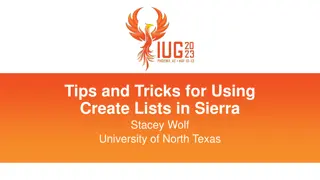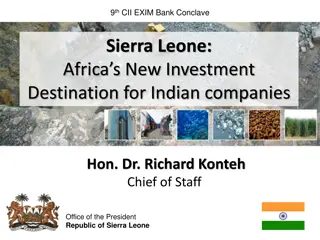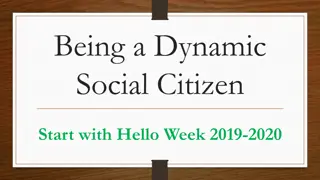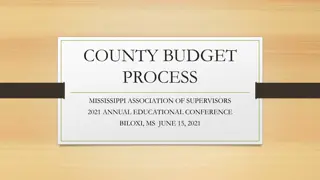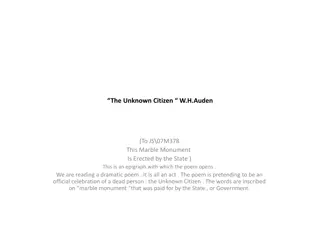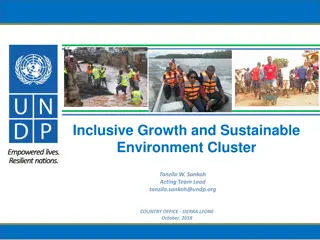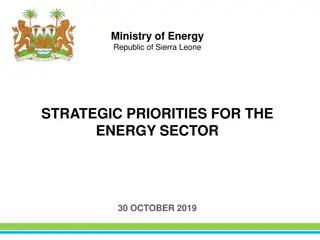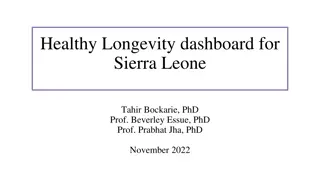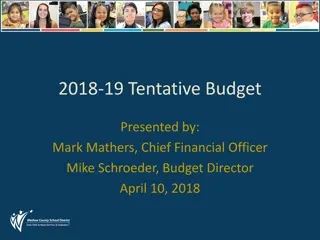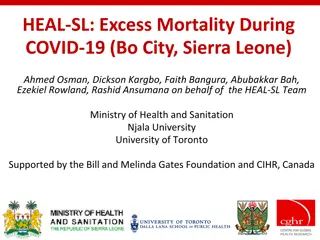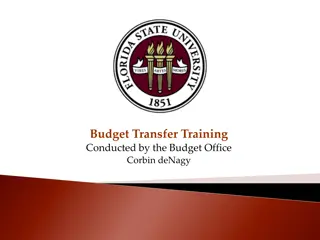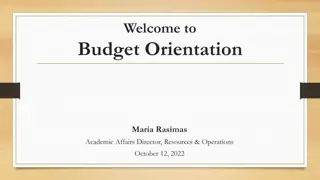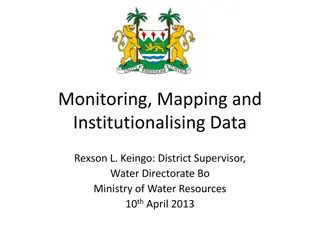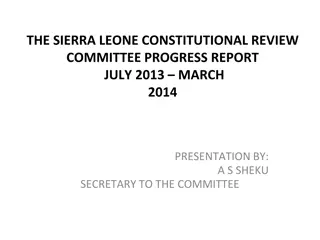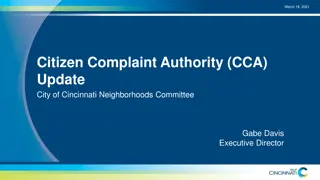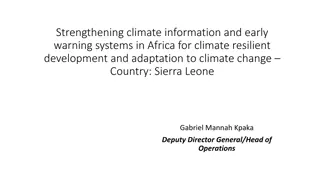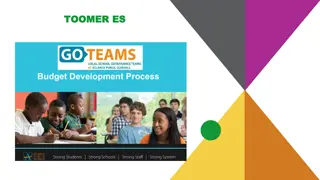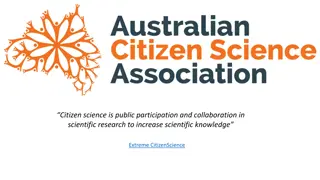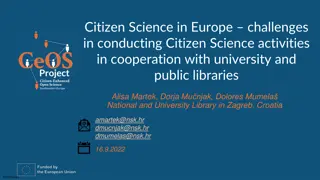Exploring Citizen Participation in Sierra Leone's Budget Process
The budget process in Sierra Leone has evolved over the years to include citizen participation through hearings and bilateral discussions. From 2005 to date, legislative acts and frameworks have been put in place to facilitate engagement, ensuring citizen input in budget decisions. This engagement aims to gather citizen views on budget proposals and service delivery for a more inclusive and transparent national budget.
Download Presentation

Please find below an Image/Link to download the presentation.
The content on the website is provided AS IS for your information and personal use only. It may not be sold, licensed, or shared on other websites without obtaining consent from the author. Download presentation by click this link. If you encounter any issues during the download, it is possible that the publisher has removed the file from their server.
E N D
Presentation Transcript
Sierra Leones policy hearings and bilateral budget discussions Mathew Dingie Principal Deputy Financial Secretary , Ministry of Finance & Abu Bakarr Kamara- Coordinator, Budget Advocacy Network
The Context The Context From 2005-2015 Citizen participation in the budget process started when the Government Budgeting and Accountability Act 2005 was enacted Parts IV the Government Budgeting and Accountability Act, 2005 clearly make provision for that but was limited to CSOs, DBOCs and traditional leaders The Medium Term Expenditure Framework (MTEF) emphases and clearly spell out how citizen should participate in the policy hearings and budget discussions and what is expected of them The Budget Call Circular make provision for citizen to engage their MDAs of interest prior to the budget discussion and policy hearings
The Context The Context From 2016 to date The Public Financial Management Act 2016 and its Regulations replaced the Government Budgeting and Accountability Act 2005. It provide an open space for all citizen to participate in the budget discussions. The MTEF was revised and make provision for pre-budget discussion with citizen through CSOs with respective MDAs prior to the main budget discussion The Budget Call Circular issue by MoF instruct MDAs to make space for citizen to engage them on issue they want to be factor into their respective budget prior to the budget discussion
Public Participation Goal Public Participation Goal To give citizen an opportunity to express their views on the budget proposal, development initiatives, and service delivery This is to ensure that the budget incorporate the inputs, suggestions and new ideas from the citizen into the national budget
The entry points and mechanisms used The entry points and mechanisms used There is a legal and regulatory framework with make it mandatory for citizen to participate in the budget discussion and policy hearings Public announcement is made in radio and TV stations inviting the public to participate in the budget discussion There are CSOs whose focus is on PFM issues The Policy Hearings and Bilateral Budget Discussions, has grown steadily over the last several years, and now includes not only central government ministries, departments and agencies, but also parastatals, state-owned enterprises, and local councils.
The entry points and mechanisms used The entry points and mechanisms used The consultations open with a day-long Policy Hearing that allows for a range of actors, including central government ministries, local government, and state-owned enterprises, to engage with the public regarding the proposed Medium-Term Expenditure Framework and key sectoral priorities and policy proposals A range of opinions is heard from during the meetings, including from several organizations representing often marginalized groups, such as people living with HIV, women farmers, and youth with disabilities This is followed by the Bilateral Budget Discussions, which are a series of meetings, each of which focuses on a specific state-owned entity, ministry or other unit. Each meeting includes a discussion of the institution in question s past budgetary performance, as well as the proposed budget for the upcoming yea
The entry points and mechanisms used The entry points and mechanisms used Following a presentation by representatives from the institution, the public can ask questions, make observations, offer suggestions, and generally participate in a discussion on specific policies and priorities for the new budget.
Challenges faced Challenges faced Limited information being shared prior to the meeting Limited feedback on how inputs are being used Low capacity of majority of the CSOs to critically engage the MDAs on technical issues
Lessons learnt Lessons learnt Citizen participation in the budget discussion has brought diverse view and opinion into the process hence help in shaping the agenda of government in terms of delivery services The budget discussion platform has now been use as a channel to bring neglected issue for government attention. There is a formidable CSOs whose work is mainly on PFM- they help in mobilizing CSOs, vulnerable groups and other stakeholders. This has lead to increase citizen interest in the budget discussion
Advice to government/civil society Advice to government/civil society For country whose legal and regulatory framework does not guarantee citizen participation in the budget process- they should develop one that will guarantee that CSOs need to constantly follow up with the budget discuss timeline and ensure that government adhere to the regulatory framework citizen participation in the budget process The Ministry of Finance should take the leadership to create the space for citizen to participate in the budget process. This will bring legitimacy in the process and hence citizen will own budget as their ideas




